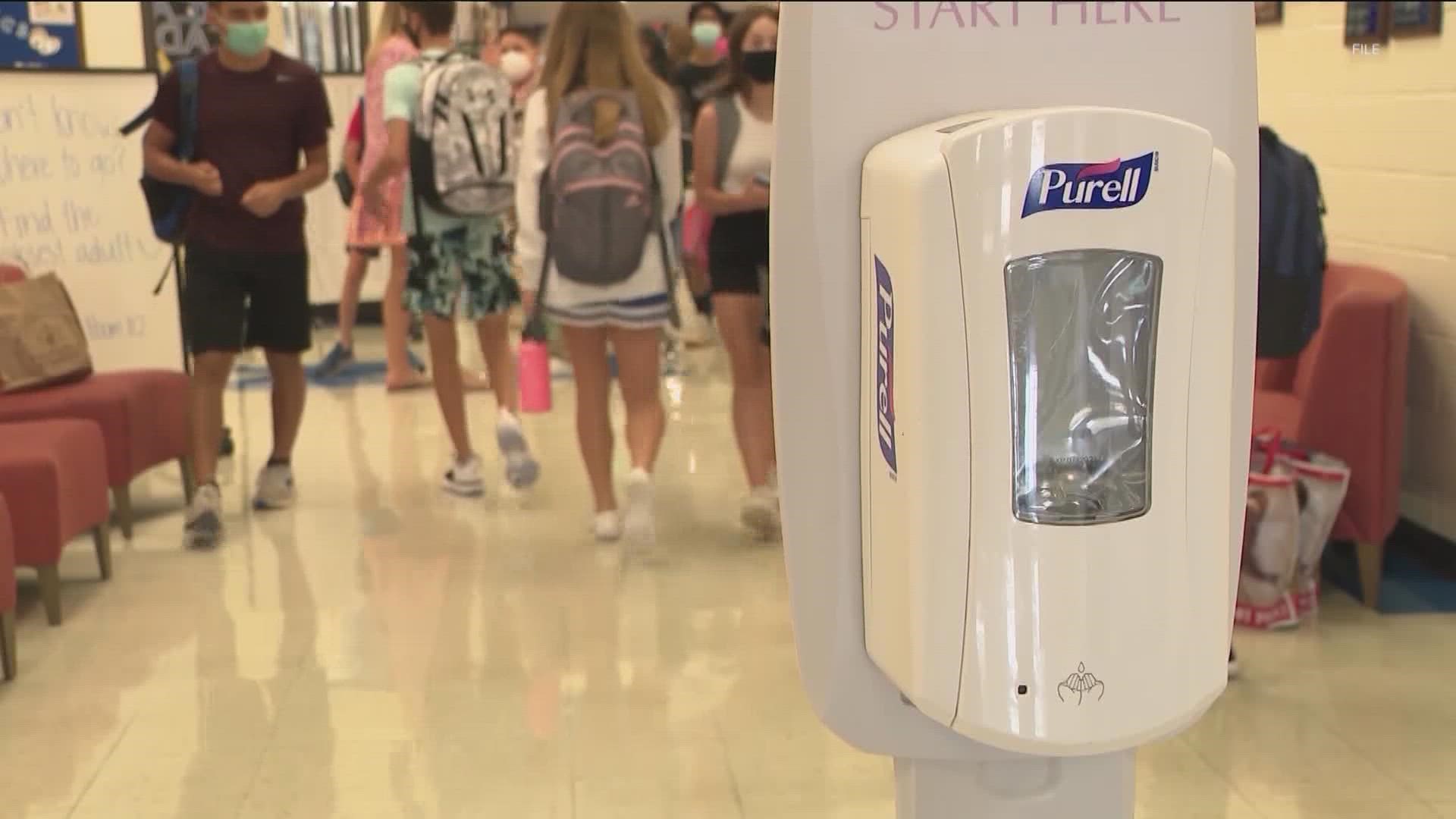AUSTIN, Texas — On Monday, Texas Children’s Hospital hosted a back-to-school press conference over Zoom to address many concerns and questions parents have as their kids head back to the classroom. The main concerns doctors touched on were COVID-19, polio, monkeypox and mental health following the school shooting in Uvalde.
With COVID-19, the doctors said they are seeing a decline in hospitalizations this past week and that they believe we are declining from the peak of omicron BA.5. They said this is good news and that we have not seen any new variants.
But they said school will be a test. They said all kids 5 and older, who are eligible, can get a booster shot. Doctors said vaccination is a key tool to keeping kids healthy this school year. They said in the Houston area, where the hospital is located, only 25% of school-aged kids are vaccinated for COVID-19.
Another tool to slow the spread of COVID-19 is masks. When KVUE asked where doctors stand on masking, one doctor said we are living more normal lives now compared to two years ago when it comes to COVID-19. He said it is up to parents and children to evaluate risk factors and decide if the child will wear a mask to school. Things to consider are the school setup, community spread and vaccination status. But no matter what, a mask will add an extra layer of protection.
"It's clearly effective at preventing infection, including breakthrough infections," said Dr. James Versalovic with Texas Children's Hospital. "But I think it's important to point out that we're in a different place right now in society, and I think we recognize that it's a mask-optional world in most places."
Another doctor said he still recommends masks for all kids, especially unvaccinated kids. He said kids are still being hospitalized with COVID-19 and the vaccine has shown to reduce severe illness. He said, at Texas Children's Hospital, they are seeing fewer kids being hospitalized with COVID but that about one out of every three kids who is hospitalized with COVID ends up in the ICU.
"Nothing is worse for a parent than having your child be in the hospital with oxygen and tubes coming in and out of their body," said Dr. Stan Spinner with Texas Children’s Pediatrics and Urgent Care. "That is a trauma that you will never forget. So, we really want to consider all these risk factors in deciding, do we want to be masking or not?"
When it comes to polio, doctors said that there are no cases in Texas as of right now, but that it is concerning that there are cases in the U.S., like in New York. They said we have seen the damage polio can do in past outbreaks and that the best thing is to make sure adults and kids are vaccinated. They said polio is very deadly and transmitted easily. They said there’s no treatment.
“For those children who are not vaccinated for polio, that is a certainly a huge concern if we start to see polio spreading again,” said Dr. Stan Spinner, chief medical officer and vice president at Texas Children’s Pediatrics and Urgent Care.
Doctors said with monkeypox, it’s rare in children. The Department of State Health Services reported that in Texas, only two kids have been confirmed to have monkeypox as of Aug. 15. Doctors said this should not be a big concern ahead of the school year, as intimate, prolonged contact is needed for monkeypox to spread. They said this would be more of a risk to teenage students, who may kiss or take part in sexual activity. They said to speak with teenage kids to be aware of open sores on themselves or others. But for younger kids and any students in a classroom or school setting, this is not a major concern.
“This is not COVID. Let's be clear. This is not an infection that's going to be as contagious, nearly as contagious in any way, because it's not an airborne virus,” said Dr. James Versalovic, pathologist-in-chief at Texas Children's Hospital. “It can certainly be transmitted through respiratory droplets and close contact. But this is in a completely different league.”
When it comes to mental health and the recent Uvalde school shooting, doctors said with kids and teens, parents need to listen to what they say and don’t assume what their kids are feeling. They recommend really listening to what their concerns are, before sharing an immediate response.
PEOPLE ARE ALSO READING:

